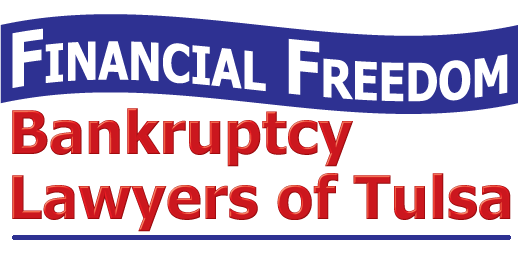Oklahoma Bankruptcy HelpWhat is a Tulsa, Oklahoma Bankruptcy Means Test?
 In 2005, the face of bankruptcy law changed nationwide with the enactment of the Bankruptcy Abuse Prevention and Consumer Protection Act (BAPCPA). Among the many changes included the creation of the Oklahoma bankruptcy means test. Simply put, means testing requires people of a certain income level to partially repay their debts under Chapter 13 rather than eliminate them under Chapter 7 of the U.S. Bankruptcy Code.
In 2005, the face of bankruptcy law changed nationwide with the enactment of the Bankruptcy Abuse Prevention and Consumer Protection Act (BAPCPA). Among the many changes included the creation of the Oklahoma bankruptcy means test. Simply put, means testing requires people of a certain income level to partially repay their debts under Chapter 13 rather than eliminate them under Chapter 7 of the U.S. Bankruptcy Code.
Oklahoma Bankruptcy Means Test
The Oklahoma bankruptcy means test is usually pretty simple; if your annual income is less than or equal to the median income level (as calculated by the U.S. Census Bureau) for your state, you can ask for forgiveness of most of your debts in Chapter 7 bankruptcy.
As of December 2019, the annual median income levels for Oklahoma were the following:
- One-person household: $48,322
- A household of two people: $58,436
- Household of three people: $65,400
- Household of four people: $75,326
Source: U.S. Trustee Program/Dept. of Justice
What does this mean? If you are a single mom with three children and earn $76,000 a year through alimony and your job, you can’t file for Chapter 7 bankruptcy in most cases. If you can successfully prove your necessary living expenses call for an exception, a U.S. Bankruptcy Court judge might allow you to file Chapter 7 — but don’t count on it.
Chapter 7 vs. Chapter 13
Most people prefer the liquidation or forgiveness of many of their debts under Chapter 7 of the U.S. Bankruptcy Code, but partially repaying your creditors under Chapter 13 has some advantages.
Lessened credit reporting time: When you or your Tulsa bankruptcy attorney file a case, a credit reporting time frame begins. This is 10 years for Chapter 7, but only 7 years for Chapter 13. So, it will be a quicker process to get credit at good interest rates after Chapter 13 as opposed to Chapter 7.
Higher likelihood of keeping assets such as a home or a vehicle: While Oklahoma bankruptcy exemptions allow you to keep much of your personal property, it is easier to keep your home and vehicle in Chapter 13. You can even do this, with the right combination of income and repayments, if you have fallen behind on your mortgage and auto loan payments. Specific questions about this process, called reaffirmation, are best directed to a qualified Tulsa bankruptcy attorney.
Ineligible Debts
Unless you can prove a serious and permanent disability, your college has closed, or a school committed some provable act of negligence or fraud, plan on fully repaying your federal government student loans.
Also, you must use the appropriate family court rather than the bankruptcy court to change your alimony or child support obligations.
Recent tax bills, court fines, restitution, and any bills resulting from fraud or another crime cannot be reduced or eliminate in any type of bankruptcy.
Free Consultation: Tulsa Bankruptcy Attorney
Bankruptcy law and its forms are complicated, and mistakes will cost you. It is important to get the forms right the first time.
Your Tulsa bankruptcy attorney can help you understand the process and what debts you will likely be required to pay, which debts are secured with collateral, and what property is exempt.
Because we have worked with so many clients, we know how to do the filings right and how to make the process efficient. Our goal is to make affordable debt relief in Tulsa available to anyone who needs to get out from under debt and back on top of their financial life.
Get out from under by calling for the help you need today. We are here to help.
To receive your free initial bankruptcy analysis, call Freedom Financial Bankruptcy Lawyers of Tulsa today at 918-786-9600.




